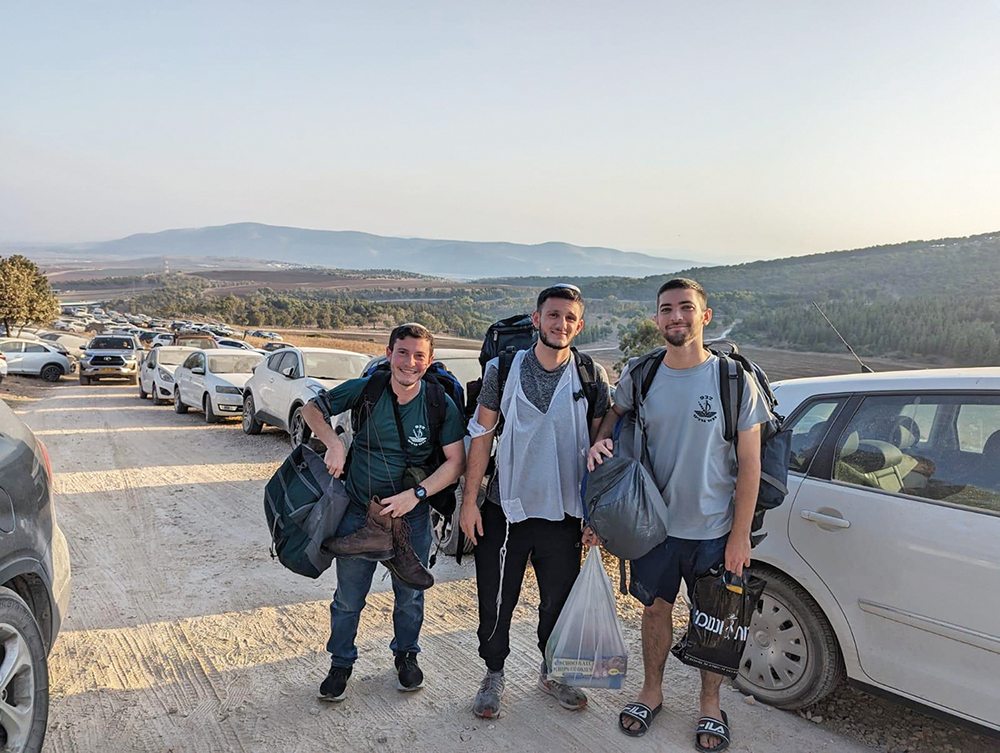
Written as of Sunday afternoon, October 8.
“In each and every generation, a person must view himself as though he personally left Egypt” (Mishna Pesachim 10:5). These famous words, recited every year at the Pesach Seder, serve as a visceral reminder of the eternal significance of the Israelites’ redemption from slavery in Egypt. Had Hashem not taken us out with His strong hand and outstretched arm, we would not be able to serve Him, perform the mitzvot, nor fulfill our unique role as Hashem’s chosen nation. Our national and religious identity as Jews can thus be traced back to the exodus from Egypt and our deliverance into the promised land.
Furthermore, over the course of the Seder, we relate how our ancestors witnessed great miracles throughout the process of redemption. “The wondrous acts that you saw with your own eyes, the signs and the portents, the mighty hand, and the outstretched arm by which your God יהוה took you out…” (Dev 7:19). We recall Hashem’s love and compassion for His people: He split the Yam Suf for Bnei Yisrael to cross, sustained them in the desert, and gifted our people with the Torah. These instances of mass revelation, passed down from generation to generation, are perhaps the greatest support in favor of Judaism’s validity and of Hashem’s choosing of us as His nation.
I’m currently writing from an army reserves base, just two months after finishing my service in the Nachal Brigade. Across the land of Israel, we know that the Simchat Torah dancing was interrupted with the sound of air raid sirens, as parents and relatives sent off their loved ones to battle against those who terrorize Israel. Against this backdrop, wearing my uniform this time is different. It takes on a different meaning: we are no longer in training. Yet, some of the staples of my previous army service have resurfaced. The numbness and monotony still persist, even as we literally fight for the security of the Jewish State in this time of crisis. And staring point blank at the real possibility of having to kill another human, one cannot embrace their emotions. Conflicting feelings are accompanying me in our confrontation with the enemy.

In general, I try my best to write with a degree of objectivity, and to utilize halachic sources and draw insight from pesukim. In this pressing time, the pasuk running through my mind most clearly is the final verse in the prophetic song of Ha’azinu. ״הַרְנִינוּ גוֹיִם עַמּוֹ כִּי דַם עֲבָדָיו יִקּוֹם וְנָקָם יָשִׁיב לְצָרָיו וְכִפֶּר אַדְמָתוֹ עַמּוֹ״, (Dev. 32:43). “Sing out praise, O you nations, for God’s people! For He will avenge the blood of His servants, wreak vengeance on His foes, and appease His land [and] His people.” In this verse, Moshe forewarns the nations of the world: At the end of days, Hashem will exact retribution on behalf of the afflicted Jewish people.
In the current situation, I find this pasuk particularly meaningful. Although the nation has paid an unfathomable price, in blood, Hashem promises that suffering will be followed by deliverance. Hashem, the Lord of Hosts, will ultimately redeem his People with great miracles, continuing from above pasuk from Devarim. “…Thus will your God Hashem do to all the nations you now fear (Dev 7:19).”
On the grand historical scale, whenever calamity befalls Israel and the House of Jacob, we may never know if we indeed have reached “the End of Days.” However, as I now stand waiting in line to grab my gear and take the field, anticipating that our officers will soon confiscate our phones, I know that Hashem has determined that this is where I belong, and I am certain that I am playing my assigned role in Jewish destiny. Whether I’m in reserves or not, whether I’m actively fighting or on guard duty, learning Torah or simply relaxing on my porch, I am faithful to the Guardian of Israel to place me where I belong.
Looking ahead—in those days, b’yamim ha’hem, when we are on the cusp of a final redemption, we will inevitably face a choice. One option is to live “as if” we were there, like it says above in the Mishnah in Pesachim, and to merely imitate an experience second-hand. Alternatively, we can actually be there, first-hand, in the Land of Israel, latering merit to tell the stories on our own as b’nei chorin.
At this moment, a gemara I learned in Masechet Brachot comes to mind, where the sages say that the Final Redemption will be so much greater and poignant than Yetziat Miztrayim, that the former will completely overshadow the latter and take on primary significance.
Right now, even with all the violences and activity in the present, I find myself thinking about the future of the Jewish people. I think the answer largely depends on how we conduct ourselves in the present, and in similar situations. Let’s ask ourselves: do we want to be able to share our stories with our kids, like our forefathers from Egypt did? Or, are we merely content with just imagining we were there, instead?
Brian Racer is originally from Teaneck and served as a lone soldier in the Nachal Brigade. He is currently a madrich at Yeshivat Lev Hatorah.









